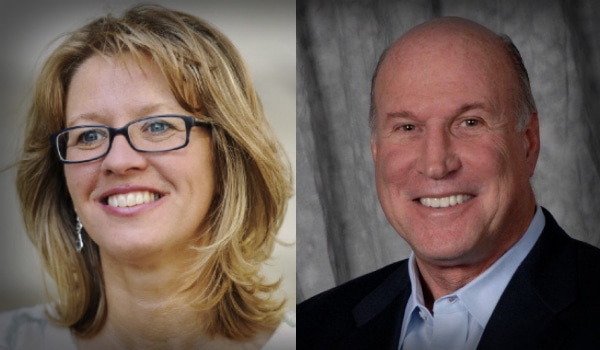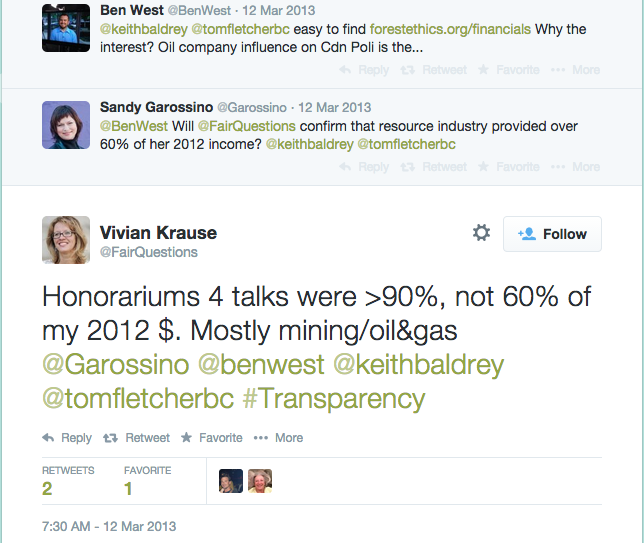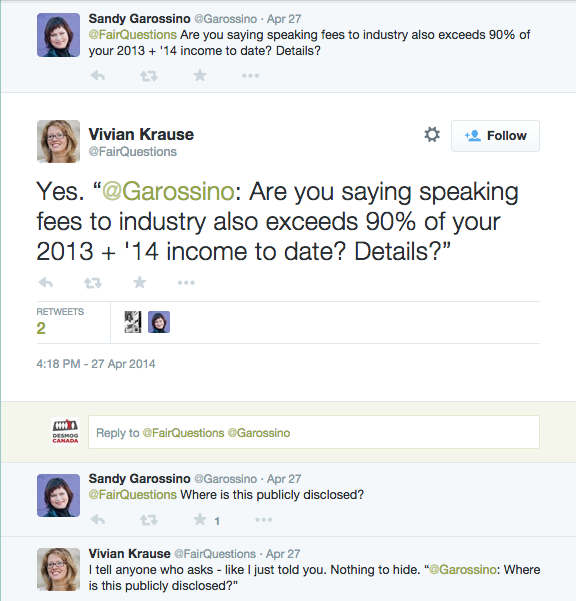He had no idea he was being taped.
So when influential Washington, DC, political consultant Richard Berman talked about strategy and tactics to the oil and gas industry’s Western Energy Alliance in Colorado Springs this past June, he didn’t mince words.
“This is an endless war,” Berman said.
The secret tape was published in the New York Times a few weeks ago, released by a displeased oil industry executive, on condition of anonymity.
As he urged industry reps to employ tactics like digging up embarrassing tidbits about environmentalists and liberal celebrities, Berman also made one emphatic point:
“People always ask me one question all the time, ‘How do I know that I won’t be found out as a supporter of what you’re doing?’ We run all of this stuff through non-profit organizations that are insulated from having to disclose donors. There is total anonymity. People don’t know who supports us. We’ve been doing this for 20-something years in this regard.”
The Western Energy Alliance, at whose June meeting Berman laid out his cold-blooded strategy, describes membership as “an investment in the future of the independent oil and gas community in the West.” Its members throughout the U.S. and Canada “share and support our commitment to improve business conditions, expand opportunities and move the industry forward.”
The only government member of the 480-member Western Energy Alliance is the Canadian Consulate.
Deliberately Misleading the Public
What was Berman, chief executive of Berman & Company, doing talking to the Western Energy Alliance? He was there to raise $3 million from energy executives to pay for an advertising and PR campaign named “Big Green Radicals.”
Berman boasts of having more than 25 “non-profit” front groups that launder money from industry players of all sorts, including the fossil fuel sector, with no way for citizens to find out about this clandestine funding.
“I am religious about not allowing company names to ever get used … And I don’t want companies to ever admit that because it does give the other side a way to diminish our message.”
Major corporations secretly financing such a campaign should not worry about offending the general public because “you can either win ugly or lose pretty,” he said.
That strategy sounds familiar back in Canada.
Here’s a deliberately misleading statement that would seem to come straight out of Berman’s manual: “For the fossil fuel industries, the battle with environmental activists is no longer David versus Goliath.”
But this wasn’t a statement from Berman — no, this is the final sentence of an article by Vancouver “researcher” Vivian Krause, who came out of the woodwork in the fall of 2009 when she first started writing a blog called Fair Questions, taking aim at the David Suzuki Foundation’s work on farmed salmon and the support it received from U.S. charitable foundations.
Fun fact: Krause is a nutritionist who worked doing PR for the farmed salmon industry. But it didn’t take long for her so-called “fair questions” to extend to many other environmental issues and organizations.
Instead of searching for a fair answer, Krause settled upon a conspiracy theory. It was to be a story she told over and over again — and it goes like this:
The corporate sector is beleaguered by rich environmental groups bolstered by money from U.S. charitable foundations with a hidden, self-interested agenda — not to do good in the world, or protect the environment, but to attack Canadian competition.
Krause wrote that U.S. foundations were funding work to “demarket” Canadian oil, so the U.S. can control the market. She attacked one of British Columbia’s greatest conservation achievements, The Great Bear Rainforest agreement, as part of this conspiracy, calling the forest, “The Great Trade Barrier.”
She pursued this theory with blinders on — ignoring all other money in the debate, ignoring all rational explanations for U.S. foundations funding work in Canada and ignoring organizations like Ethical Oil and British Columbians for Prosperity that tout Krause’s arguments but don’t disclose their own sources of funding.
Krause’s work is largely responsible for providing the federal government the ammunition it needed to earmark $13 million for the Canada Revenue Agency to conduct audits of charities’ “political activities.” Diverting the attention of environmental groups to decrease their effectiveness is another strategy out of Big Oil’s dirty PR playbook — as indicated in the Edelman documents outlining a strategy to do just that in the TransCanada Energy East pipeline debate.
Krause has maintained she’s working out of her North Vancouver basement apartment, driven by a sense of injustice to right a wrong. No one was paying her. In fact, she was living on her savings. It seemed an implausible story given the time she put into the work.
Eventually, Vancouver businessperson and civic advocate Sandy Garossino managed to get Krause to admit on Twitter that more than 90 per cent of her income from 2012 onward has come from resource sector speaking fees.
But this hasn’t stopped her message being picked up verbatim by those who agree with it.
In July 2014, Krause’s work was published in the fossil fuel industry magazine, Alberta Oil, an updated version of the same-old-same-old story.
Her message — now also Prime Minister Stephen Harper’s message — is reinforced by other contributors in the issue of Alberta Oil. There’s Ezra Levant, the abrasive Sun Media host, and author of “Ethical Oil” who asserts: “Some organizations are on the payroll, like the Council of Canadians, that took $1.6 million from U.S. foundations to fight against fracking.”
The editor of Alberta Oil, Sebastian Gault, tells readers that Krause “uncovered an international sponsored scheme [he just about said “conspiracy,” didn’t he?] to stall energy development.”
He adds: “We now have a better understanding of the rise of Big Green and its influence over pseudo-grassroots organizations working against the resource sector.”
“Big Green?” Guess where that term comes from? Straight from Rick Berman, who vowed to wage a campaign he would call “Big Green Radicals.”
Embarrass them publicly, ridicule them, don’t worry about playing fair or being honest, the goal is simple: win. That is Berman’s message and Krause’s years of attacks on Canadian environmental groups seem to play from his book.
–
Editor’s Note:
We know that upon publishing this article, angry tweets and messages in the form of personal attacks will be aimed at damaging the credibility of DeSmog Canada.
We know this will happen because this is what Krause and her followers do again and again, straight from the Berman script. This makes many journalists wary of challenging what Krause says and particularly intimidates those she directly attacks.
But DeSmog Canada exists to cut through the spin clouding the debate on important national issues such as natural resource development, the economy and democracy — and we wouldn’t be doing our job if we shied away from this topic.
Next up: Digging Deeper into Vivian Krause’s Disingenuous Anti-Environment Witch Hunt
Subscribe to our newsletter
Stay up to date with DeSmog news and alerts








